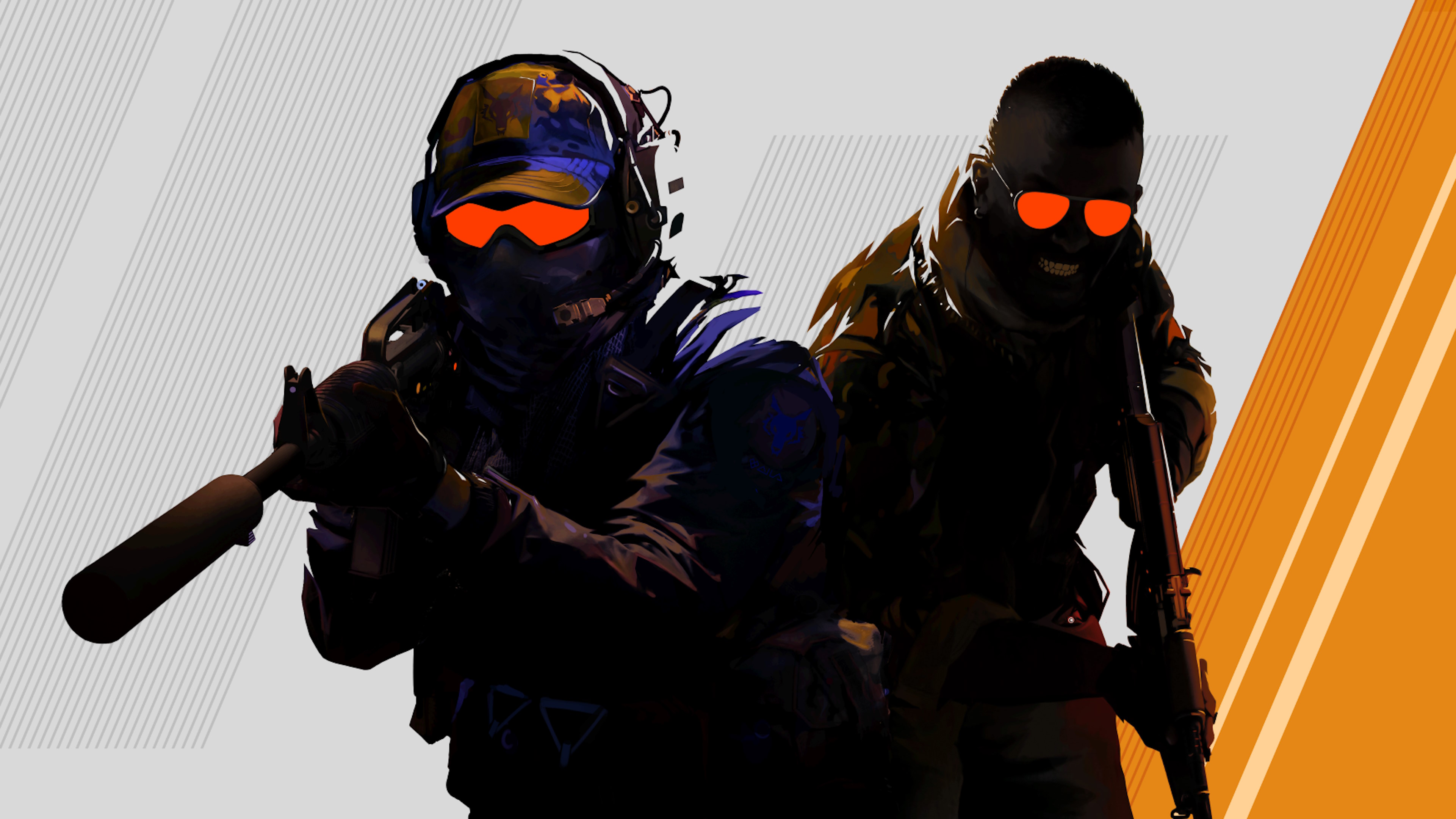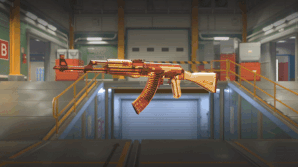Latest CS2 patch has skin collectors in meltdown over a supposed $2bn in losses, with others saying 'this is the best update ever', but maybe Valve is just doing some course-correction and doesn't care
AK Six-Seeven!

CS2's latest update has certainly put the cat among the pigeons, and feathers are flying. The innocuous-sounding patch "extended functionality of the 'Trade Up Contract' to allow exchanging five items of Covert quality as follows: five StatTrak Covert items can be exchanged for one StatTrak Knife from a collection of one of the items provided, five regular Covert items can be exchanged for one regular Knife item or one regular Gloves item from a collection of one of the items provided."
What's the big deal, anyone who ever sees the sun might think. CS2's wacky economy has certain constants, and one of those is that the super-rare and most valuable items are knives and to a lesser extent gloves. The price for a unique gun skin may well shoot into the stratosphere but, generally speaking, knives are the most sought-after commodity in the CS2 skin game.
And until this update, you could only get a knife by either getting lucky when opening a case (with miniscule chances), or by straight-up buying one on the Steam community market.
Now players can trade-up five Covert items, coloured red, into StatTrak knives, regular knives, and regular gloves. Covert items are not ten-a-penny, but nor are they anywhere near as rare as the top-tier items. Therefore CS2 has added a relatively achievable route for any player to work their way towards a desirable and high-rarity item.
The immediate impact of this was panic among skin traders who suddenly saw something with market-breaking potential. The more players who unlock such 'high-value' items like knives, which can be sold on the Steam Marketplace, the less valuable existing items are. Hence in the maelstrom that is the CS2 skins economy, knife and glove prices are currently dropping, whereas certain Covert skins have gone up massively in value.
You won't have to go far to find reports of the skins market tanking in value by anything from $1 billion to $2 billion. That gap of a mere billion between estimates is why I'd urge extreme caution over some of the sums being thrown around here. Bloomberg reports that $1.75 billion in market value fell out of CS2 skins overnight following this update. But these estimates always lead back to third-party skin platforms and traders, who self-evidently have an interest in inflating value, and the high-end prices are so entangled with crypto and other speculative assets that I'm not convinced a firm dollar amount can be assigned to the market.
Yes, you do get CS2 skins that go for ludicrous amounts of money. When you get those stories about a $400K gun skin, though, dollars to donuts that $400K is an entirely or majority crypto-based transaction. I certainly wouldn't dispute that there's an awful lot of money sloshing around in CS2 skins. But to imply this is a $7 billion industry that's lost billions in value overnight… that somehow feels like leaving Earth behind.
Keep up to date with the most important stories and the best deals, as picked by the PC Gamer team.

One thing is indisputable: skin prices are having a moment, and some are winning and some are losing. There are some absolutely wild community theories out there about why Valve has done this, so let's have a little bit of whack-a-mole. A highly upvoted thread on Reddit speculates the update could be because "Valve is hurting for cash" which is absolute Looney Tunes: Valve is so profitable (thanks mostly to Steam) that its per-head profits make Apple and Facebook look like a lemonade stand.
Counter-Strike 2 is an enormously popular game, attracts roughly 30 million players a month while staying at the top of Steam's best-sellers, and for any other company would be a golden goose: But I cannot emphasise enough what a small part of Valve's business it represents. Valve owns the machine that makes golden gooses, and takes a piece of every egg they lay. The idea that a CS2 update would be in any way motivated by the wider company being hard-up is absurd.
However, it's not unreasonable to suggest that Valve has no particular care for what's going on in the wider skins market: which it doesn't control, doesn't profit from (traders will typically work out fees privately then just use a third-party moneyman and trade on Steam rather than selling via Steam), and is unlicensed. In PCG's interview with the CS2 dev team in 2023, this is what they said about the skins market:
"We generally only look at market prices when we're thinking about shipping new stuff and want to understand players' preferences. Players' interest in items fluctuates over time for many reasons so outside of that context we try not to read too much into temporal changes. And as we were leading up to CS2 we were focused on other areas of the game, so while there may have been lots of interesting things going on in the market, we weren't paying attention."
Yes, this is a slightly evasive answer: And it's a little on-the-nose for the people who ultimately make the decisions about CS2 and its wider ecosystem to claim they don't pay attention. But what I do think is plausible is that Valve and the CS2 dev team prioritise the long-term health of the game and the Steam ecosystem over the third-party ecosystem.
In other words, what some are painting as an economic disaster may actually make a lot of sense for the CS2 economy that Valve cares about, regardless of what it does to the external one it has no control over. Skin traders and platforms may well lose out but, really, why should Valve care about that?
Take a look at the CS2 subreddit and you'll see a total mix of responses, plenty about market chaos and $2 billion etcetera but also a fair number of players kinda glad that… they might be able to get a knife skin at some point? The reality of what Valve has done here will shake-out over the weeks to come. But it feels hard to argue that it's made things worse for the average Counter-Striker.
Or as one player put it: "This is the best update ever."
2025 games: This year's upcoming releases
Best PC games: Our all-time favorites
Free PC games: Freebie fest
Best FPS games: Finest gunplay
Best RPGs: Grand adventures
Best co-op games: Better together

Rich is a games journalist with 15 years' experience, beginning his career on Edge magazine before working for a wide range of outlets, including Ars Technica, Eurogamer, GamesRadar+, Gamespot, the Guardian, IGN, the New Statesman, Polygon, and Vice. He was the editor of Kotaku UK, the UK arm of Kotaku, for three years before joining PC Gamer. He is the author of a Brief History of Video Games, a full history of the medium, which the Midwest Book Review described as "[a] must-read for serious minded game historians and curious video game connoisseurs alike."
You must confirm your public display name before commenting
Please logout and then login again, you will then be prompted to enter your display name.


